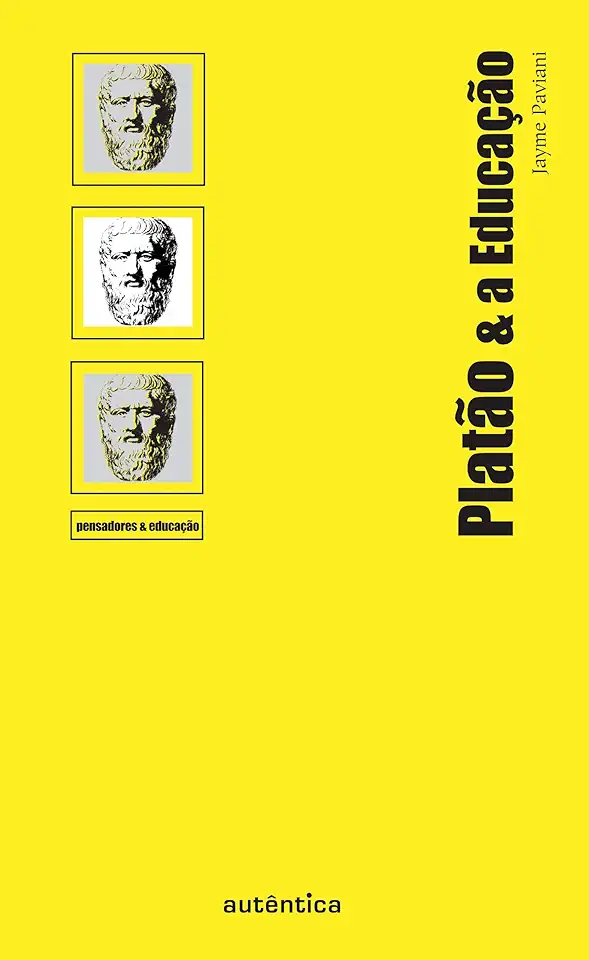
Plato and Education - Jayme Paviani
Plato and Education: A Comprehensive Exploration of the Philosopher's Educational Philosophy
Introduction: Unveiling the Profound Impact of Plato's Educational Thought
Plato, the ancient Greek philosopher, stands as a towering figure in the realm of education. His profound insights into the nature of learning, the role of the teacher, and the purpose of education have left an indelible mark on educational thought and practice. In "Plato and Education," Jayme Paviani presents a comprehensive exploration of Plato's educational philosophy, offering a compelling invitation to delve into the depths of this intellectual giant's ideas.
Plato's Vision of Education: Cultivating the Mind and Soul
Plato believed that education was not merely about imparting knowledge but about cultivating the mind and soul. He envisioned an educational system that would produce virtuous citizens, capable of critical thinking, moral reasoning, and civic engagement. Paviani meticulously examines Plato's educational ideals, highlighting the philosopher's emphasis on developing intellectual virtues, such as wisdom, courage, temperance, and justice.
The Academy: A Model of Excellence in Education
Plato's most significant contribution to education was the establishment of the Academy, the first institution of higher learning in the Western world. Paviani provides a detailed account of the Academy's curriculum, teaching methods, and intellectual atmosphere. He demonstrates how Plato's educational vision was brought to life within the Academy, creating a vibrant community of scholars dedicated to the pursuit of knowledge and virtue.
The Socratic Method: Questioning the Path to Truth
At the heart of Plato's educational philosophy lies the Socratic method, a powerful technique of inquiry and critical thinking. Paviani elucidates the essence of the Socratic method, explaining how it challenges assumptions, exposes contradictions, and leads to a deeper understanding of complex issues. He illustrates how Plato employed this method in his dialogues, engaging his students in thought-provoking conversations that stimulated intellectual growth.
The Role of the Teacher: Guiding the Journey of Learning
Plato held teachers in high regard, considering them essential guides on the path to knowledge. Paviani explores Plato's conception of the ideal teacher, emphasizing the qualities of wisdom, virtue, and pedagogical skill. He discusses Plato's belief that teachers should not only impart knowledge but also inspire students to think critically and develop their own understanding of the world.
Education for All: Envisioning an Inclusive Society
Plato's educational vision extended beyond the privileged few. He advocated for an inclusive education system that would encompass all citizens, regardless of their social status or gender. Paviani sheds light on Plato's progressive ideas about education for women and his emphasis on the importance of educating the masses to create a just and harmonious society.
The Relevance of Plato's Educational Philosophy Today
Paviani concludes by demonstrating the enduring relevance of Plato's educational philosophy in the contemporary world. He argues that Plato's insights into the nature of learning, the role of the teacher, and the purpose of education offer valuable guidance for educators and policymakers seeking to create meaningful and transformative educational experiences.
Conclusion: Embark on an Intellectual Odyssey with Plato
"Plato and Education" is an indispensable resource for anyone interested in the history of education, philosophy of education, or the enduring legacy of Plato's thought. Jayme Paviani's comprehensive analysis of Plato's educational philosophy invites readers to embark on an intellectual odyssey, exploring the profound ideas that have shaped educational thought for centuries. Whether you are an educator, a student, or simply someone curious about the nature of learning, this book promises to enrich your understanding and inspire you to reflect on the purpose and potential of education.